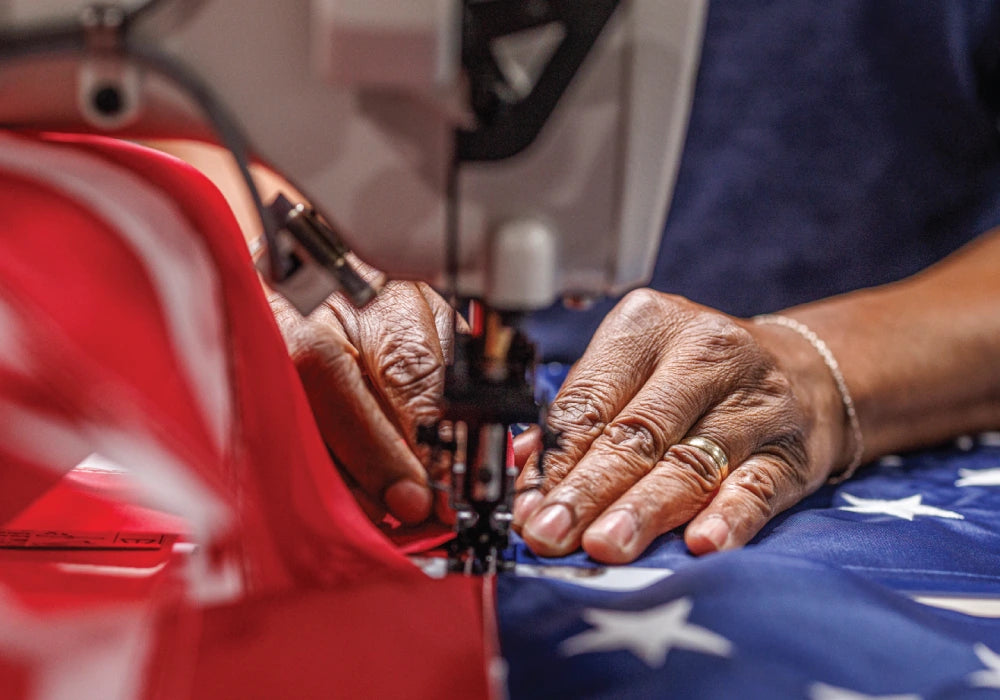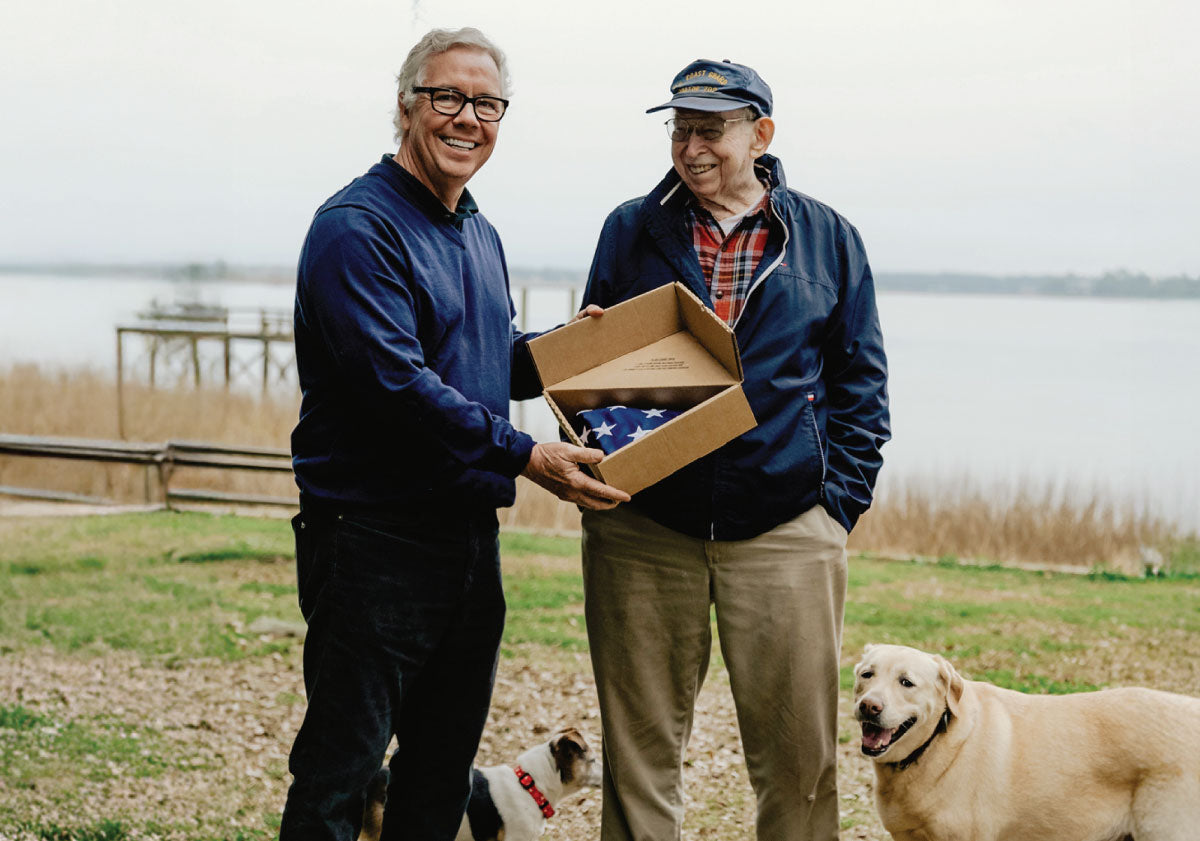December 17

1892
Arthur Baldwin Turnure first publishes Vogue, a new magazine dedicated to “the ceremonial side of life” and targeted at “the sage as well as the debutante, men of affairs as well as the belle.” From its inception the magazine targeted the New York upper class, such as the Vanderbilts and Astors, "recounting their habits, their leisure activities, their social gatherings, the places they frequented, and the clothing they wore...and everyone who wanted to look like them and enter their exclusive circle". A product of the Gilded Age, Vogue has chronicled and influenced high society, fashion and culture ever since.


1903
Near Kitty Hawk, North Carolina, Orville and Wilbur Wright made the first successful flight in history of a self-propelled, heavier-than-air aircraft. Orville piloted the gasoline-powered, propeller-driven biplane, which stayed aloft for 12 seconds and covered 120 feet on its inaugural flight. During the next few years, the Wright brothers further developed their airplanes but kept a low profile about their successes in order to secure patents and contracts for their flying machines. In 1909, the U.S. Army’s Signal Corps purchased a specially constructed plane, and the brothers founded the Wright Company to build and market their aircraft. Wilbur Wright died of typhoid fever in 1912; Orville lived until 1948. The historic Wright brothers’ aircraft of 1903 is on permanent display at the National Air and Space Museum in Washington, D.C.

1963
One of the first major pieces of environmental legislation in the United States, The Clean Air Act is signed into law by President Lyndon B. Johnson. The new law empowered federal and state agencies to research and regulate air pollution, marking a major expansion of government efforts to fight back against the damage being done to the climate. The landmark act and its subsequent amendments—updates were passed in 1967, 1970, 1977 and 1990—comprise some of the most comprehensive air-quality legislation in the world. Though there is a very long way to go, national emissions dropped 63% between 1980 and 2015, despite overall economic growth and an increase in the number of miles driven over that time, thanks largely to the provisions of the Clean Air Act and its successors.
December 18

1620
The British ship Mayflower docked at modern-day Plymouth, Massachusetts, and its passengers prepared to begin their new settlement, Plymouth Colony. Aided by the Wampanoag, especially the English-speaking Squanto, the Pilgrims were able to plant crops, predominantly corn and beans, that were vital to their survival. Over the next several decades, more and more settlers made the trek across the Atlantic to Plymouth, which gradually grew into a prosperous shipbuilding and fishing center. In 1691, Plymouth was incorporated into the new Massachusetts Bay Association, ending its history as an independent colony.

1966
Dr. Seuss' How the Grinch Stole Christmas! aired on CBS for the first time. It is based on the 1957 children's book of the same name by Dr. Seuss, and tells the story of the Grinch, who tries to ruin Christmas for the townsfolk of Whoville below his mountain hideaway. Realizing that Christmas means more than just material possessions, the Grinch's heart grows three sizes its original small size. The special was released in the midst of a wave of animated holiday specials, joining a number of other 1960s productions (such as 1964's Rudolph the Red-Nosed Reindeer, 1965's A Charlie Brown Christmas, 1968's The Little Drummer Boy, 1969's Frosty the Snowman, and 1970's Santa Claus Is Comin' to Town) that have come to be regarded as classics.

1972
The “Christmas Bombing” of North Vietnam began. Following the breakdown of peace talks with North Vietnam, President Nixon ordered plans drawn up for retaliatory bombings of North Vietnam. During Operation Linebacker II, American B-52s and fighter-bombers dropped over 20,000 tons of bombs on the cities of Hanoi and Haiphong. The US lost 15 of its giant B-52s and 11 other aircraft during the attacks. North Vietnam claimed that over 1,600 civilians were killed. The bombings continued until December 29, at which time the North Vietnamese agreed to resume peace talks. A few weeks later, the final Paris Peace Treaty was signed and the Vietnam War came to a close.
December 19

1972
The Apollo lunar-landing program ended when the last three astronauts to travel to the moon splashed down safely in the Pacific Ocean. Apollo 17 had lifted off from Cape Canaveral, Florida, 10 days before. In July 1969, after three years of preparation, the National Aeronautics and Space Administration (NASA) accomplished President John F. Kennedy’s goal of putting a man on the moon and safely returning him to Earth with Apollo 11. From 1969 to 1972, there were six successful lunar landing missions, and one aborted mission, Apollo 13. During the Apollo 17 mission, astronauts Eugene A. Cernan and Harrison H. Schmitt stayed for a record 75 hours on the surface of the moon, conducting three separate surface excursions in the Lunar Rover vehicle and collecting 243 pounds of rock and soil samples.


1990
Los Angeles Raiders running back Bo Jackson was named to the AFC Pro Bowl team as a reserve, becoming the first athlete chosen for all-star games in Major League Baseball and the NFL. In the late 1980s, Bo Jackson—who won the Heisman Trophy at Auburn in 1985—captivated fans with his athleticism. Fans' fascination with Jackson continued into the next decade. In the summer of 1989, Jackson was selected to his first MLB All-Star Game. He made his mark in the Midsummer Classic with a towering first-inning home run off National League pitcher Rick Reuschel. Jackson fractured his hip in a 1991 NFL playoff game, forcing his eventual retirement from both sports.

1997
Director James Cameron’s epic drama Titanic, the story of the real-life luxury ocean liner that struck an iceberg and sank on its maiden voyage in 1912, resulting in the deaths of more than 1,500 passengers and crew, opened in theaters. Titanic catapulted its young stars Leonardo DiCaprio and Kate Winslet to international fame and won 11 Academy Awards, including Best Picture, Best Director and Best Music (for the song “My Heart Will Go On,” sung by Celine Dion). The film also immortalized the line “I’m the king of the world!”—which Cameron famously repeated during the Oscar ceremony, as he picked up his gold statuette for Best Director.
December 20

1946
Christmas classic "It's a Wonderful Life" premiered in New York. The film stars James Stewart as George Bailey, a man who has given up his personal dreams, in order to help others in his community, and whose suicide attempt on Christmas Eve brings about the intervention of his guardian angel, Clarence Odbody (Henry Travers). Clarence shows George how he has touched the lives of others and how different life would be for his wife Mary and his community of Bedford Falls if he had not been born. The film has since been recognized by the American Film Institute as one of the 100 best American films ever made.


1957
While spending the Christmas holidays at Graceland, his newly purchased Tennessee mansion, rock-and-roll star Elvis Presley received his draft notice for the United States Army. After basic training, Presley sailed to Europe on the USS General Randall. For the next 18 months, he served in Company D, 32nd Tank Battalion, 3rd Armor Division in Friedberg, Germany, where he attained the rank of sergeant. Meanwhile, Presley’s manager, Colonel Tom Parker, continued to release singles recorded before his departure, keeping the money rolling in and his most famous client fresh in the public’s mind.

1989
The United States invaded Panama in an attempt to overthrow military dictator Manuel Noriega, who had come to power after being recruited by the CIA to assist in the U.S. struggle against the spread of communism in Central America in 1970. He had been indicted in the United States on drug trafficking charges and was accused of suppressing democracy in Panama and endangering U.S. nationals. Noriega’s Panamanian Defense Forces were promptly crushed by the 9,000 U.S. troops who joined the 12,000 U.S. military personnel already in Panama. The U.S. invasion of Panama cost the lives of only 23 U.S. soldiers and three U.S. civilians. In 1992, Noriega was found guilty of drug trafficking, racketeering, and money laundering, marking the first time in history that a U.S. jury convicted a foreign leader of criminal charges.
December 21

1891
30-year-old James Naismith introduced the first game of basketball. Based on 13 rules created by Naismith, the game was tested by 18 students at the International Young Men’s Christian Association Training School in Springfield, Massachusetts. Two teams of nine players each competed against each other, with the objective to throw a soccer ball into a peach basket attached to a balcony 10 feet above the floor. Naismith, who died in 1939, became the first basketball coach at Kansas University, where he led the Jayhawks from 1898-1907.

1937
Snow White and the Seven Dwarfs premiered at the Carthay Circle Theatre. Based on the 1812 German fairy tale by the Brothers Grimm, it is the first full-length traditionally animated feature film and the first Disney animated feature film. It was a critical and commercial success and, with international earnings of more than $8 million during its initial release, it briefly held the record of highest-grossing sound film at the time. Adjusted for inflation, it is one of the top-ten performers at the North American box office and the highest-grossing animated film. In 1989, the United States Library of Congress deemed the film "culturally, historically, or aesthetically significant" and selected it as one of the first 25 films for preservation in the National Film Registry.


1968
Apollo 8, the first manned mission to the moon, was successfully launched from Cape Canaveral, Florida, with astronauts Frank Borman, James Lovell, Jr. and William Anders aboard. On Christmas Eve, the astronauts entered into orbit around the moon, the first manned spacecraft ever to do so. During Apollo 8‘s 10 lunar orbits, television images were sent back home, and spectacular photos were taken of Earth and the moon from the spacecraft. In addition to being the first human beings to view first-hand their home world in its entirety, the three astronauts were also the first to see the far side of the moon. On July 20 of the next year, Neil A. Armstrong and Edwin “Buzz” Aldrin, astronauts of the Apollo 11 mission, became the first men to walk on the moon.
December 22

1894
The Amateur Golf Association of the United States—later renamed the United States Golf Association—was formed in New York to govern the sport. Five charter golf clubs join to form the association—Newport (Rhode Island) Golf Club; St. Andrews Golf Club in Westchester County, New York; Chicago Golf Club in Wheaton, Illinois; Shinnecock Hills Golf Club in Southampton, New York; and The Country Club in Brookline, Massachusetts.

1941
British Prime Minister Winston Churchill arrived in Washington, D.C. for a series of meetings with FDR on a unified Anglo-American war strategy and a future peace. Among the momentous results of these U.S.-Anglo meetings was a declaration issued by Churchill and Roosevelt that enjoined 26 signatory nations to use all resources at their disposal to defeat the Axis powers and not sue for a separate peace. This confederation called itself the “United Nations.” All 26 nations declared a unified goal to “ensure life, liberty, independence and religious freedom, and to preserve the rights of man and justice.” The blueprint for the destruction of fascism and a future international peacekeeping organization was born.


1956
A baby gorilla named Colo was born at the Columbus Zoo in Ohio, becoming the first-ever gorilla born in captivity. Weighing in at approximately 4lbs, Colo, a western lowland gorilla, was the daughter of Millie and Mac, two gorillas captured in French Cameroon, Africa, who were brought to the Columbus Zoo in 1951. Before Colo’s birth, gorillas found at zoos were caught in the wild, often by brutal means. Today, there are approximately 750 gorillas in captivity around the world and an estimated 100,000 lowland gorillas (and far fewer mountain gorillas) remaining in the wild. Most zoos are active in captive breeding programs and have agreed not to buy gorillas born in the wild. She eventually became a mother of three, grandmother of 16, great-grandmother of 12 and great-great-grandmother of three. Colo passed away at the age of 60 in 2017.
December 23

The captain and crew of the U.S. intelligence-gathering ship USS Pueblo were released after 11 months of imprisonment by the government of North Korea. The ship, along with its 83-man crew, were seized by North Korean warships on Jan. 23, 1968 and charged with intruding into North Korean waters. One sailor was killed in the attack. To secure their release, the U.S. government had to offer a written apology, admit that the Pueblo had been engaged in a spy mission, and a pledge that the United States would never attempt to launch any future such missions. After the last man had crossed the bridge, the United States verbally retracted all its admissions, apologies and assurances. But the USS Pueblo itself remained in North Korean captivity, as it does to this day. So did ten encryption machines and thousands of pages of top secret documents seized from the ship.

1972
The Pittsburgh Steelers beat the Oakland Raiders, 13-7, on rookie running back Franco Harris' "Immaculate Reception" touchdown in the waning seconds of a playoff game, one of the greatest plays in NFL history. On 4th-and-10 from his 40-yard line with 22 seconds left and no timeouts, Steelers quarterback Terry Bradshaw, under pressure, threw a pass toward Frenchy Fuqua at Oakland's 35-yard line. Raiders defensive back Jack Tatum crashed into Fuqua, apparently hitting the football, which ricocheted toward Harris, who caught it inches off the turf and ran down the sideline for a 60-yard touchdown.

1982
The Missouri Department of Health and the federal Centers for Disease Control (CDC) inform residents of Times Beach, Missouri that their town was contaminated when the chemical dioxin, “the most potent cancer-causing agent made by man,” was sprayed on its unpaved roads, and that the town will have to be evacuated and demolished. By February, the federal and state governments had spent $36 million to buy every house in town except one (its owners, lifelong residents of Times Beach, refused to sell). In all, the EPA incinerated 265,000 tons of dioxin-tainted soil. In 1985, the city was officially disincorporated.






